


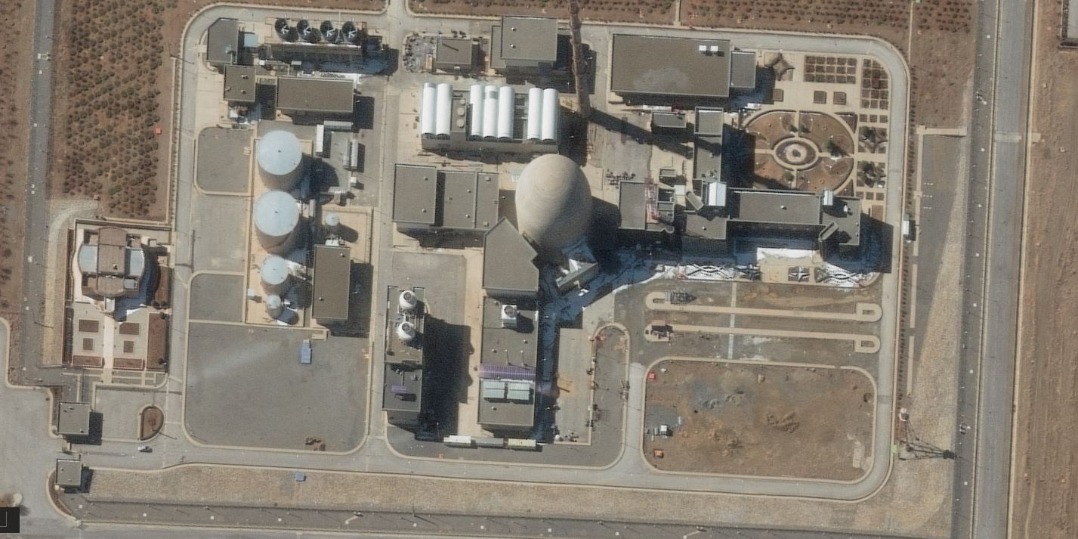
Iranian nuclear facilities may have largely survived attack, initial report says.
UN chief welcomes Trump's announcement of Israel-Iran ceasefire and urges Israel and Iran to fully respect the ceasefire and to stop fighting.
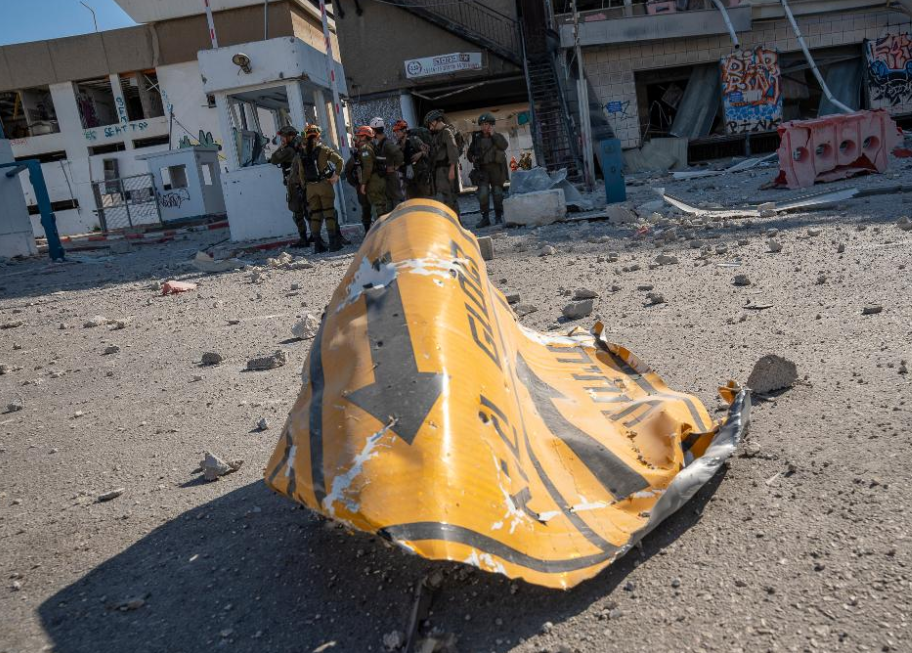
China hopes to work with other BRICS countries to continue to work for peace and stability in the Middle East, Foreign Ministry spokesman Guo Jiakun said on Wednesday.
Guo made the remarks after Brazil released a joint statement of the BRICS on the escalation of the security situation in the Middle East.
The statement issued on Tuesday said the BRICS is gravely concerned about the military strikes against Iran since June 13.
The attacks "constitute a violation of international law and the Charter of the United Nations, and the subsequent escalation of the security situation in the Middle East", the statement said, calling on all parties to engage through existing channels of dialogue and diplomacy.
"BRICS countries are a progressive force for maintaining world peace and stability and upholding international fairness and justice," Guo said at a regular news conference.
The statement plays a constructive role in easing tensions in the Middle East, Guo said.
In response to a question about how much Iranian crude oil China is importing, Guo said China will take reasonable energy security measures according to its own national interests.
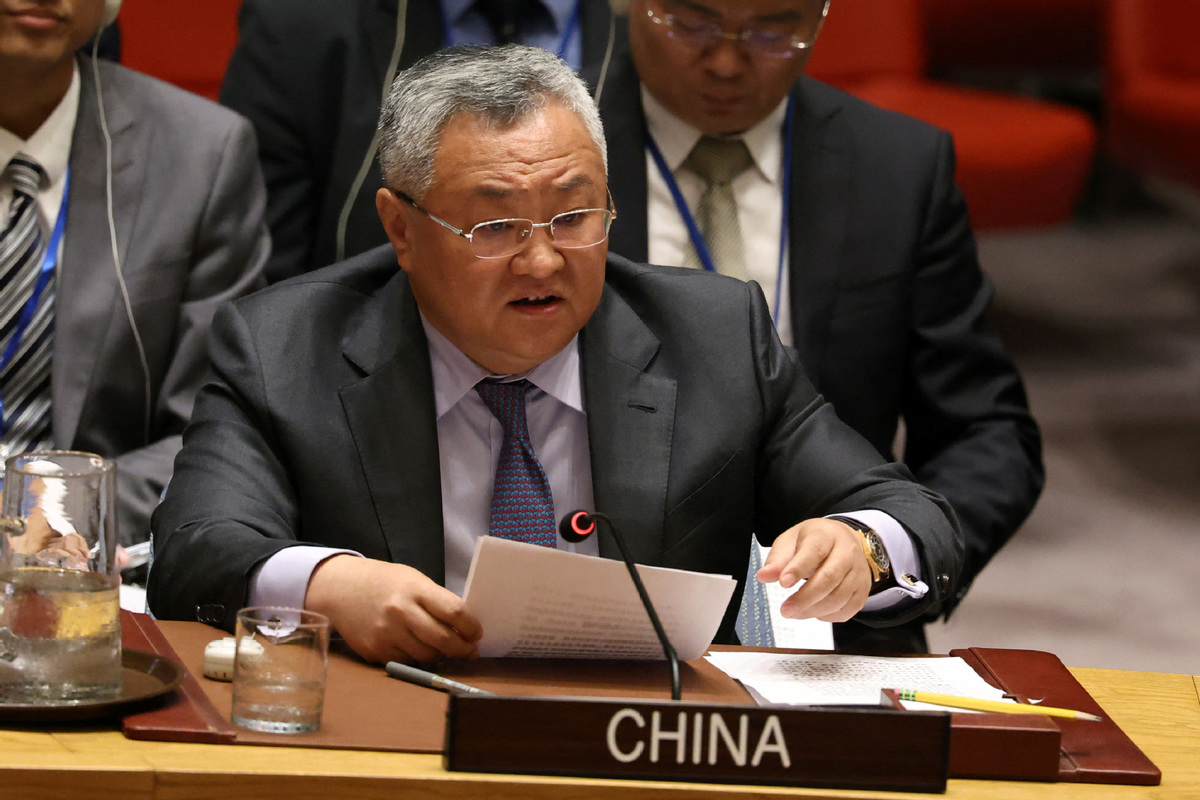
China's envoy to the United Nations on Tuesday condemned the recent military strikes by Israel and the United States on Iranian nuclear facilities, calling them a "serious violation of international law and an infringement on Iran's sovereignty".
Fu Cong, China's permanent representative to the UN, warned that attacking nuclear facilities under the safeguards of the International Atomic Energy Agency "sets a dangerous precedent and poses a grave threat to the international non-proliferation regime".
"These actions have also undermined diplomatic efforts to resolve the Iranian nuclear issue and created significant uncertainty in the implementation of Security Council Resolution 2231. China is deeply concerned and seriously worried about this development," said Fu.
Fu said China has noted that some members of the Security Council continue to "single out Iran for alleged non-proliferation violations, while attempting to justify the military actions of Israel and the United States".
"China urges these countries to face the following basic facts: It was the United States that triggered the current Iranian nuclear crisis," said the ambassador.
Fu said that in 2018, the US "unilaterally withdrew" from the Joint Comprehensive Plan of Action, "reinstated and continuously escalated unilateral sanctions against Iran, and imposed maximum pressure measures that prevented Iran from enjoying the economic benefits promised under the agreement, thereby forcing it to reduce its compliance".
He noted that the US further "undermined its credibility" by launching military strikes on Iranian nuclear sites, "derailing its own negotiation process and heightening regional tensions", said Fu.
"Iran's sincerity in resolving the nuclear issue should be duly recognized," said Fu, adding that Iran continues to fulfill its non-proliferation obligations and implements its Comprehensive Safeguards Agreement.
"Iran has repeatedly stressed that it does not seek to develop nuclear weapons and has engaged in multiple rounds of professional and pragmatic negotiations with the US in good faith, never abandoning diplomatic efforts," he continued.
He said some countries have "selectively cited" IAEA reports while disregarding Iran's cooperation with the agency. He warned that actions have "undermined the atmosphere for dialogue and intensified confrontation. The countries concerned should seriously reflect on the harmful consequences of these irresponsible actions," said Fu.
"China believes that diplomatic efforts to resolve the Iranian nuclear issue have not been exhausted and that a peaceful resolution remains possible. All parties should draw lessons from the current situation, resume dialogue on the basis of equality, and work together to bring the Iranian nuclear issue back onto the track of political resolution," said Fu.
Fu stressed that "an immediate ceasefire and cessation of hostilities is imperative". "The use of force is not a viable solution to international disputes, nor can it resolve the Iranian nuclear issue," said Fu, noting recent developments on the ground and called for a genuine and effective ceasefire.
"Political settlement remains the only viable path," he said, stressing the importance of balancing non-proliferation goals with the peaceful use of nuclear energy.
"Iran should continue to abide by its commitment not to develop nuclear weapons," said Fu. "All parties should fully respect Iran's right to the peaceful use of nuclear energy as a State Party to the Treaty on the Non-Proliferation of Nuclear Weapons. All parties should resolve their respective legitimate concerns through equal-footed dialogue and consultation," he continued.
Fu reiterated that launching dialogue and negotiations is the fundamental solution. "China supports all efforts aimed at restarting the nuclear talks and believes this is also the position of the vast majority of Security Council members," he said.
Fu urged relevant countries to abandon the practice of threatening to trigger the "snapback" mechanism of sanctions, warning that doing so would only "heighten tensions and further undermine diplomatic efforts".
Fu emphasized that a proper resolution to the Iranian nuclear issue is essential to the credibility and effectiveness of the global non-proliferation regime, and is vital to peace and stability in the Middle East.
"The current regional situation stands at a critical and sensitive juncture. China urges all parties to enhance their sense of urgency and demonstrate a sense of responsibility, to promote de-escalation and cooling of the situation as soon as possible, and to launch the process of resuming negotiations at an early date," he said.
shiguang@chinadailyusa.com
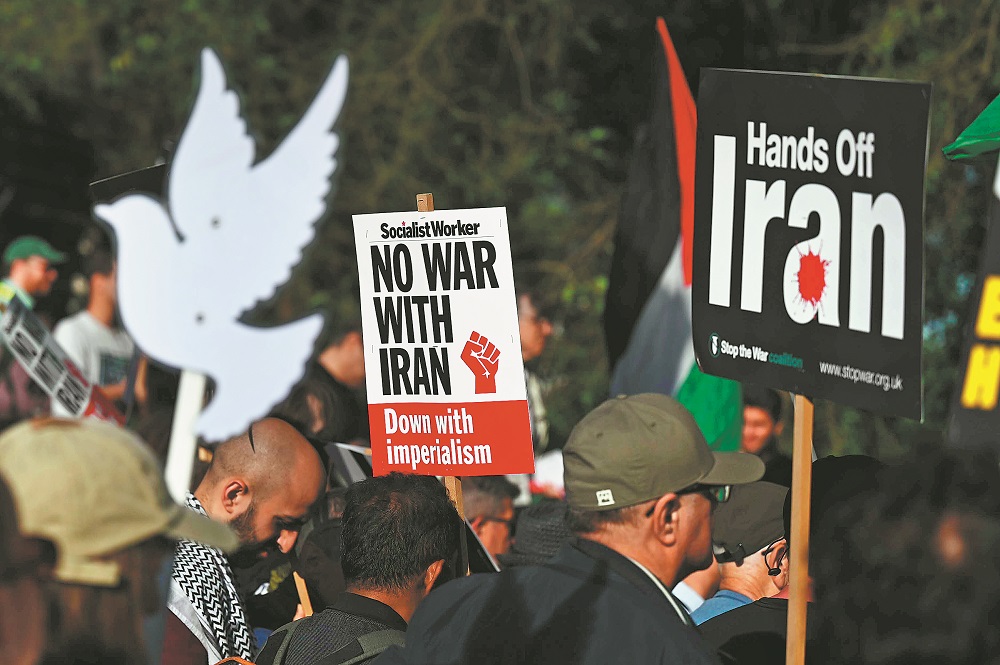
European Union foreign ministers have chosen the right path by renewing calls for diplomacy between the United States and Iran, experts and politicians say, noting that the move serves the interests of both the EU and the wider world.
The escalating crisis topped the agenda at the EU foreign ministers' meeting on Monday in Brussels, where diplomats agonized over the possibility of Iranian retaliation sparking a wider conflict and destabilizing the global economy.
"The concerns of retaliation and this war escalating are huge," said the bloc's foreign policy chief Kaja Kallas.
Along with the EU, the "E3" of Britain, France and Germany have led efforts to find a diplomatic solution, holding a seven-hour meeting in Geneva on Friday with Iran's Foreign Minister Abbas Araghchi.
British Foreign Secretary David Lammy urged Iran to meet the E3 again, and to open negotiations with the United States.
"Take the off-ramp, dial this thing down and negotiate with the United States immediately and seriously," said Lammy, who spoke to both Araghchi and US Secretary of State Marco Rubio on Sunday.
Italian Foreign Minister Antonio Tajani told reporters in Brussels that he was proposing a meeting between the US and Iran in Rome.
Qin Yan, a principal analyst at ClearBlue Markets in Oslo, Norway, said Europe has long faced a policy dilemma over the Israel-Iran issue.
"Economically, Europe is so connected to any possible price rise that it should employ all means to secure peace in the Middle East. But politically, it is so ideologically bound with the US and Israel that it always puts pressure on Iran. But they should realize that if Iran is cornered, it will be Europe that suffers the most."
Qin based her analysis on the strategic importance of the Strait of Hormuz to the global oil market. Although oil shipments through the strait make up a small portion of the EU's imports, they account for about 20 percent of global oil flow. And a closure would drive global energy prices higher, she said.
"A key buyer in the global energy market, the EU is rather sensitive to prices because of its dependence on fossil imports," she said. "So, the best strategy for the EU is to maintain peace in the Middle East, not to stand with Israel only because it's an ally of the US."
The path chosen by EU foreign ministers this time is right, she said, because it serves the interests of not only Europeans but also the whole world.
Shada Islam, an EU affairs specialist in Brussels, told China Daily: "The EU is right to call for diplomacy but, frankly, today it's a bit too late for such a statement. The diplomatic alternative to military strikes should have been hammered home to both Israel and the US days ago, more forcefully and with more conviction.
"Today, the EU is once again on the sidelines, looking in."
AP contributed to this story.
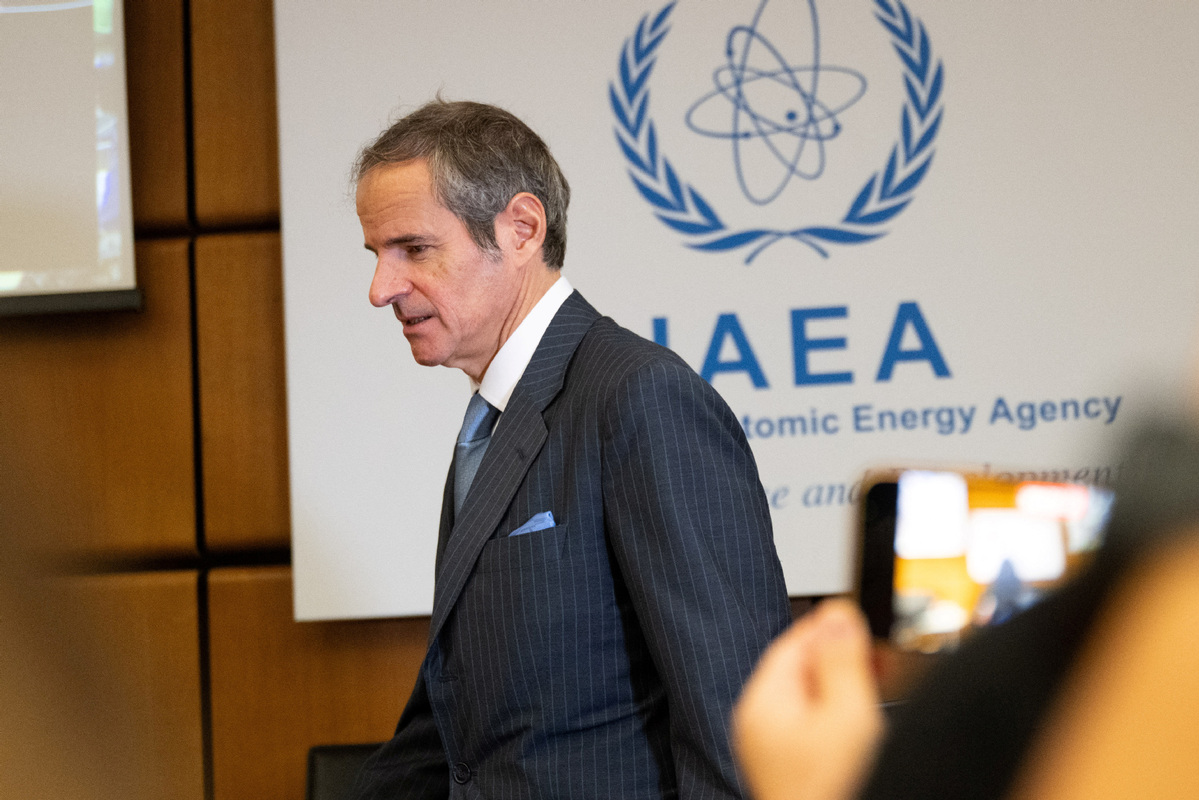
Amid growing concerns over potential radiation leaks in Iran following the bombings of three nuclear facilities, the International Atomic Energy Agency released a statement on Tuesday in which Director General Rafael Grossi said, "there has been some localized radioactive as well as chemical release inside the affected facilities that contained nuclear material — mainly uranium enriched to varying degrees — but there has been no report of increased off-site radiation levels".
"During these attacks, we have seen extensive damage at several nuclear sites in Iran, including its uranium conversion and enrichment facilities," Grossi said. However, "there has been no radiological impact to the population or the environment in neighboring countries".
The IAEA reported that radiation levels remain within normal limits.
The conflict began on June 13, when Israel launched strikes on Iran's nuclear facilities, killing around 200 people, including scientists and military personnel. The Israel Defense Forces claimed the attacks caused significant damage to Iran's research sites.
On Sunday, US president Donald Trump approved attacks on Iranian nuclear sites at Fordow, Natanz and Isfahan. Fourteen "bunker-buster" bombs weighing 13,000 kilograms that can penetrate the earth were dropped on Fordow, a deep underground fuel enrichment facility.
One of the reasons why radiation remains normal might be that Iran moved its nuclear materials before the bombing started. According to Al Jazeera, Mahdi Mohammadi, an adviser to Iran's parliament speaker, Mohammad Bagher Ghalibaf, confirmed that Iran had moved its nuclear infrastructure from Fordow in anticipation of an attack.
This claim was rebutted by Senator Markwayne Mullin, an Oklahoma Republican. "Our intelligence report says they didn't," he said, "In fact, we actually believe they stored more of it in Fordow because they believed Fordow was impenetrable."
But a report on Tuesday from The New York Times seemed to confirm Iran did move its nuclear making equipment and materials. The New York Times said they'd obtained a classified report from the government that also confirmed most of the materials for making nuclear bombs had been moved to secret sites before the strikes.
Furthermore, the report states the bombing of Iran's nuclear sites didn't cause significant damage. Two out of three facilities' entrances were sealed off but didn't impact its structures underground. The strikes only set back Iran's nuclear bomb progress by a few months, it said.
White House spokeswoman Karoline Leavitt denied the report, saying it was "a clear attempt to demean President Trump". She called the strike a "perfectly executed mission to obliterate Iran's nuclear program."
Although the situation remains stable for now, Grossi warned that attacking nuclear facilities carries extremely high risks.
"As I have repeatedly stated — before and during the conflict — nuclear facilities should never be attacked due to the very real risk of a serious radiological accident," he said.
Editor's note: As tensions flare and diplomacy teeters, this page examines the fragile Israel-Iran ceasefire and the high-stakes diplomacy surrounding it. We also turn inward to the United States, where President Donald Trump's military decision has exposed deep fractures within his own "MAGA" base.
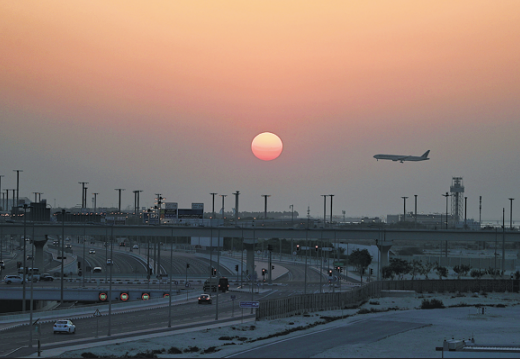
Asia-Pacific and Middle Eastern countries have welcomed the reported cessation of attacks between Israel and Iran on Tuesday, while urging all parties to pursue dialogue as the path to resolving conflicts.
Saudi Arabia's Foreign Ministry praised on Tuesday the Israeli and Iranian willingness for a ceasefire — first announced by United States President Donald Trump — saying it "values the efforts exerted to de-escalate tensions" amid fears of a brewing regional escalation.
The ministry said it looks forward to all parties committing to de-escalation in the coming period and refrain from the use or threat of force, hoping that the agreement will contribute to restoring security and stability in the region and averting the dangers of continued escalation.
"The kingdom reaffirms its firm position in support of dialogue and diplomatic means as the preferred path to resolving regional disputes and conflicts, based on the principles of respecting state sovereignty and promoting security, stability and prosperity in the region and the world," the ministry said.
Australian Prime Minister Anthony Albanese welcomed Trump's announcement of the ceasefire, saying Canberra has consistently called for dialogue, diplomacy and de-escalation.
In addition, Japan welcomed the ceasefire with "strong hope "that it will be firmly implemented. Chief Cabinet Secretary Yoshimasa Hayashi said Tokyo would continue to monitor how the situation unfolds in the Middle East "with high interest".
The crude oil and stock markets saw better performances following the truce announcement, with oil rates down and stock indices up in many countries.
However, Trump told reporters at the White House on Tuesday that he was unhappy with both sides for violating the ceasefire, but particularly unhappy with Israel, which he said had "unloaded "shortly after agreeing the deal.
'Unacceptable' violation
In another development, Qatar's Prime Minister and Foreign Minister Sheikh Mohammed bin Abdulrahman bin Jassim Al-Thani said on Tuesday that Doha will pursue "diplomatic and legal measures "against Teheran following an Iranian attack on a US military base hosted in the Gulf state.
"The violation of Qatar's sovereignty is unacceptable, and all diplomatic and legal measures will be taken," he said.
On Monday evening, Qatar was subjected to an Iranian missile attack targeting the Al-Udeid Air Base of the US military, which was intercepted by Qatari air defenses, said Sheikha Alya Ahmed bin Saif Al-Thani, Qatar's permanent representative to the United Nations.
In a letter addressed to the UN Security Council, she called it a flagrant violation of sovereignty and territorial integrity.
Iranian Foreign Minister Abbas Araghchi said the missile launch was not against its Gulf neighbor but an act of "self-defense" after US strikes on nuclear sites.
"The missile operation by the Iranian Armed Forces targeting Al-Udeid base was carried out within the framework of Iran's legitimate right to self-defense," Araghchi said in a phone call with his Qatari counterpart.
The Iranian attack "should in no way be interpreted as an action against the friendly and brotherly government of Qatar", he was quoted as saying in a statement from his ministry.
The Qatari prime minister later said at a news conference in Doha, "What happened will definitely have its scar on the relationship (with Iran), but I hope by the time everyone learns the lesson that this kind of neighborhood relationship should not be violated and should not be undermined."
'Unlawful' attack
The Foreign Ministry of Oman condemned the continuing regional escalation, which was triggered by "Israel's unlawful attack" on Iran on June 13, and with the continued exchange of attacks since then, including Iran's missile strike on the US base in Qatar.
UN Secretary-General Antonio Guterres said he was "deeply alarmed by the further escalation of the conflict in the Middle East".
"I strongly condemn today's attack by Iran on Qatar, a country that has been active for peace in the region and further afield," he said.
Jasem Mohamed Albudaiwi, secretary-general of the Gulf Cooperation Council, condemned Iran's missile attack on Qatar and said GCC countries also strongly condemned Israeli attacks on Iranian territory and were making every effort to achieve a ceasefire and mediation.
Gokhan Ereli, Gulf studies coordinator at the Center for Middle Eastern Studies in Turkiye, told China Daily that Iran's targeting of the US base in Qatar as a retaliatory measure against US attacks risks triggering a severe crisis of confidence.
Despite reports that the US base had been evacuated and that advance notice was given to both the US and Qatar, "Qatar's assertion of its right to respond to the attacks stands as one of the clearest indicators of how relations between Iran and the GCC might evolve going forward", he added.
Agencies contributed to this story.
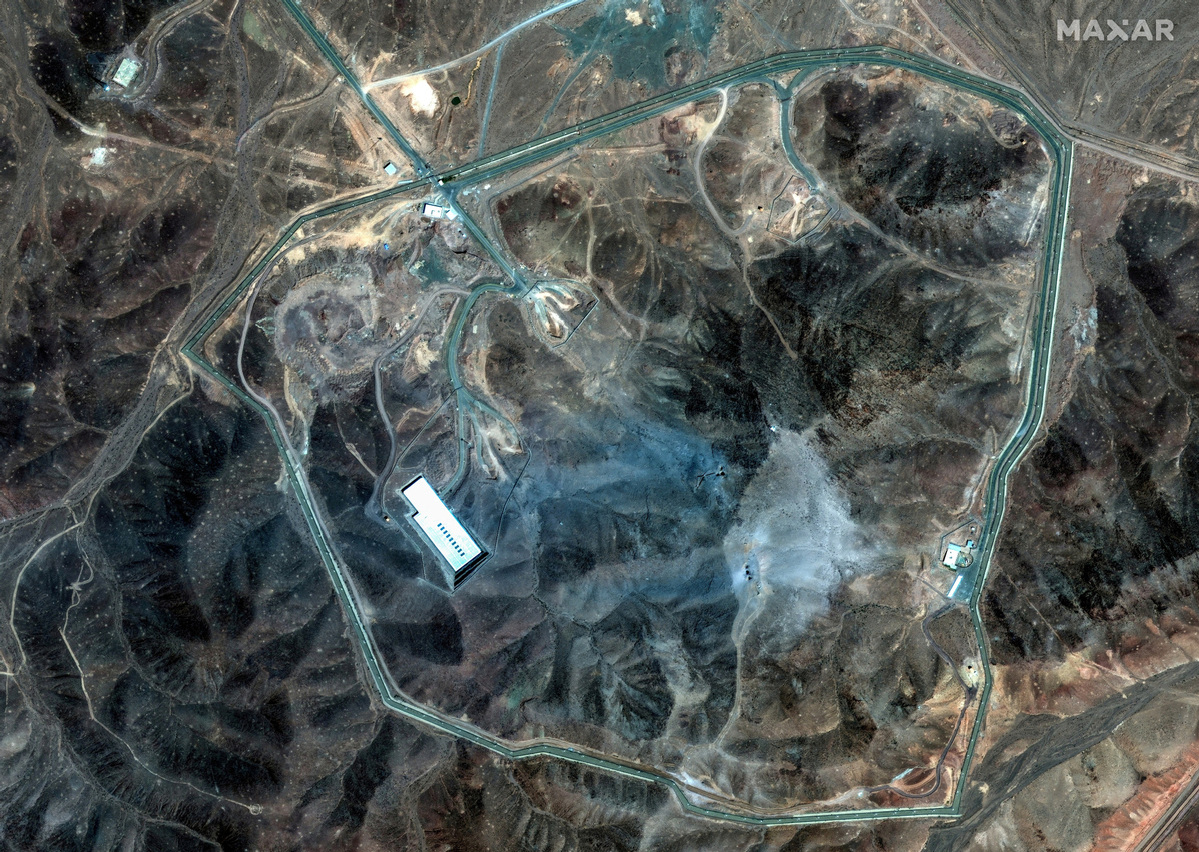
An early assessment of damage to Iran's nuclear sites by an US attack may have only set back that country's nuclear ambitions by a few months, according to an analysis obtained by CNN.
The news agency reported that an initial assessment by the Defense Intelligence Agency suggested that the US strikes on three nuclear facilities in Iran did not destroy the main components of the country's nuclear program, according to unnamed sources.
That finding contrasts with the claims of US president Donald Trump, who said the bunker-buster bombs "completely and totally obliterated" Iran's enrichment facilities.
Two other unnamed sources told CNN that Iran's stockpile of highly enriched uranium survived the attack, and the centrifuges were mostly intact.
"So the assessment is that the US set them back maybe a few months, tops," a source told CNN.
The US launched strikes on three Iranian nuclear facilities on Sunday using numerous B-2 stealth aircraft carrying "bunker-buster" bombs into the airspace of Iran, where they hit nuclear facilities at Fordow, Natanz and Isfahan.
The attack followed days of missile and bomb strikes between Israel and Iran.
On Monday night, Trump announced that the countries were about to begin a ceasefire.
TEHRAN -- Iranian air defense forces on Tuesday night detected and shot down a number of micro aerial vehicles (MAVs) in the northern city of Rasht, the semi-official Mehr news agency reported.
According to Gilan province's Deputy Governor for Security and Law Enforcement Ali Bagheri, Rasht were attacked by "invading" MAVs. He did not specify whether the unmanned aircraft belonged to Israel or not.
On June 13, Israel launched major airstrikes on different areas in Iran, including nuclear and military sites, killing several senior commanders, nuclear scientists, and civilians. Iran responded by launching several waves of missile and drone attacks on Israel, inflicting casualties and damage.
A ceasefire was declared between the two sides on Tuesday.
TEHRAN -- An Iranian spokesman said on Tuesday the country's airspace will remain closed until Wednesday afternoon, according to the semi-official Mehr news agency.
Majid Akhavan, spokesman of the Roads and Urban Development Ministry, said the decision was made in light of the recent developments and to ensure the safety of passengers and flights, noting that the flight suspension would remain in effect until 2:00 pm local time (10:30 GMT) on Wednesday.
Iran closed its airspace after Israel launched airstrikes on Tehran and other parts of the country on June 13.
A ceasefire between the two sides was declared early Tuesday.
CAIRO -- Egyptian Foreign Minister Badr Abdelatty discussed on Tuesday the latest regional developments with his Iranian counterpart Seyed Abbas Araghchi after the ceasefire between Iran and Israel came into effect earlier in the morning.
During a phone conversation, Abdelatty reiterated the importance of not infringing upon the sovereignty of Gulf countries and other Arab nations, the Egyptian Foreign Ministry said in a statement.
He welcomed the ceasefire agreement between Iran and Israel, emphasizing the need for both countries to abide by the agreement.
Abdelatty said the agreement was a pivotal step toward containing the escalation and tension witnessed in the region in recent days, restoring stability, and opening avenues for political and diplomatic paths.
He underscored the importance of self-restraint at this delicate stage, noting the significance of both sides taking practical and tangible measures to help de-escalate tensions.
The Egyptian minister also affirmed Egypt's commitment to continued coordination and consultation with all regional and international partners to support regional security and stability.
For his part, the Iranian foreign minister affirmed his country's respect for the sovereignty, unity, and territorial integrity of Qatar and all Gulf countries, affirming Iran's commitment to the principle of good neighborliness.
Earlier, US President Donald Trump announced that a ceasefire between the two sides would begin around 0400 GMT Tuesday. Both Iran and Israel later confirmed the start of the ceasefire.
On June 13, Israel launched major airstrikes on different areas in Iran, including nuclear and military sites, killing senior commanders, nuclear scientists, and civilians. Iran responded by launching several waves of missile and drone attacks on Israel, inflicting casualties and heavy damage.
On Saturday, the US Air Force bombed three Iranian nuclear sites of Fordow, Natanz, and Isfahan. In retaliation, Iran on Monday targeted US Al Udeid Air Base in Qatar with missiles.
UNITED NATIONS -- UN Secretary-General Antonio Guterres on Tuesday welcomed US President Donald Trump's announcement of a ceasefire between Israel and Iran, said a UN spokesman.
Guterres urges Israel and Iran to fully respect the ceasefire and to stop fighting, noting that the people of the two countries have already suffered too much, said Stephane Dujarric, Guterres' spokesman.
"The secretary-general hopes that this ceasefire can be replicated in the other conflicts in the region," said the spokesman.
ADEN, Yemen -- Yemen's Houthi group announced Tuesday that it will continue military operations against Israel, hours after US President Donald Trump declared a ceasefire agreement between Iran and Israel.
The announcement was made in a brief statement on social media platform X by Mohammed al-Bukhaiti, a member of the Houthi political bureau.
"The acceptance by America and the Zionist entity of a ceasefire with Iran confirms that military force is the only language they understand," al-Bukhaiti wrote in his post.
The Houthi official emphasized that the group's military operations against Israel "will continue until the aggression on Gaza stops and the siege is lifted."
On June 13, Israel launched major airstrikes on different areas in Iran, including nuclear and military sites, killing senior commanders, nuclear scientists, and civilians. Iran responded by launching several waves of missile and drone attacks on Israel, inflicting casualties and heavy damage.
On Saturday, the US Air Force bombed three Iranian nuclear sites of Fordow, Natanz, and Isfahan. In retaliation, Iran on Monday targeted US Al Udeid Air Base in Qatar with missiles.
Following Iran's attack, US President Donald Trump announced that a ceasefire between the two sides would begin around 0400 GMT Tuesday. Both Iran and Israel later confirmed the start of the ceasefire.
TEHRAN -- Iranian President Masoud Pezeshkian said on Tuesday that his country is ready to resolve issues within international frameworks and at the negotiating table.
He made the remarks in a phone call with the President of the United Arab Emirates (UAE) Sheikh Mohamed bin Zayed Al Nahyan, according to a statement published on the website of Pezeshkian's office.
Pezeshkian said Iran expected the UAE would convey to the United States that Iran seeks only its legitimate rights and is in no way after developing nuclear weapons.
He said Iran was capable of responding to Israel's military attacks, hoping that the ceasefire between Iran and Israel would hold.
He also voiced his country's readiness to deepen relations with the UAE and emphasized the importance of regional stability.
"We consider the peoples of the UAE and other regional countries as our brothers and respect all states' territorial integrity. We believe that we can build the region only through stability and peace, and of course in the absence of others' interference," said Pezeshkian.
For his part, the UAE president said self-defense was a natural right of all states, stressing that Iran, the UAE, and other regional countries were always one another's neighbors. "We should see how we can guarantee a better future for our peoples through our bilateral relations."
He also voiced his country's support for Iran amid current challenges.
On June 13, Israel launched major airstrikes on different areas in Iran, including nuclear and military sites, killing senior commanders, nuclear scientists, and civilians. Iran responded by launching several waves of missile and drone attacks on Israel, inflicting casualties and heavy damage.
On Saturday, the US Air Force bombed three Iranian nuclear sites of Fordow, Natanz, and Isfahan. In retaliation, Iran on Monday targeted US Al Udeid Air Base in Qatar with missiles.
Following Iran's attack, US President Donald Trump announced that a ceasefire between the two sides would begin around 0400 GMT Tuesday. Both Iran and Israel later confirmed the start of the ceasefire.
TEHRAN -- Iranian President Masoud Pezeshkian on Tuesday stressed that his country's missile attack against the US air base in Qatar in no way means a confrontation between Tehran and Doha.
He made the remarks in a phone call with Qatar's Emir Sheikh Tamim bin Hamad Al Thani as a goodwill gesture to mollify the Qatari side following the Iranian military action, according to a statement published on the website of his office.
"I contacted you at the earliest opportunity to say that yesterday's incident was merely a reaction to the US direct and open participation in Israel's aggression against Iranian territory and in no way constitutes a confrontation between the Islamic Republic of Iran and its friend, brother, and neighbor, Qatar," said the president.
He added that the Iranian government and people were fully aware of Qatar's "friendly and brotherly" intentions and stances towards themselves and sincerely appreciated the supports, sympathies and companionship of the Arab state's government and people, especially during tough times.
Pezeshkian said Iran sought to expand its "constructive, friendly and brotherly" relations with Qatar, expressing hope that he would soon meet the Qatari emir in Doha and discuss with him the improvement of bilateral ties.
According to the statement, Qatar's emir described the phone talk as a "conversation with a close friend," with whom he had a "very deep and friendly" relationship, stressing that his country had made considerable efforts to keep the region away from Israel's "warmongering," and especially its "aggression" against Iranian territory.
He emphasized that the US air base in Qatar had not been used for attacking Iran and would not be employed to that end in the future.
A separate report by Qatar News Agency said Sheikh Tamim also strongly condemned the Iranian missile strike, calling it a "blatant violation" of Qatar's sovereignty and airspace, as well as a breach of international law and the UN Charter.
Iran's Islamic Revolution Guards Corps said on Monday it had targeted US Al Udeid Air Base in Qatar with missiles in response to the US attack on Iranian nuclear facilities.
The attack was launched two days after US President Donald Trump announced the completion of his country's attack on the three Iranian nuclear sites of Natanz, Fordow and Isfahan.
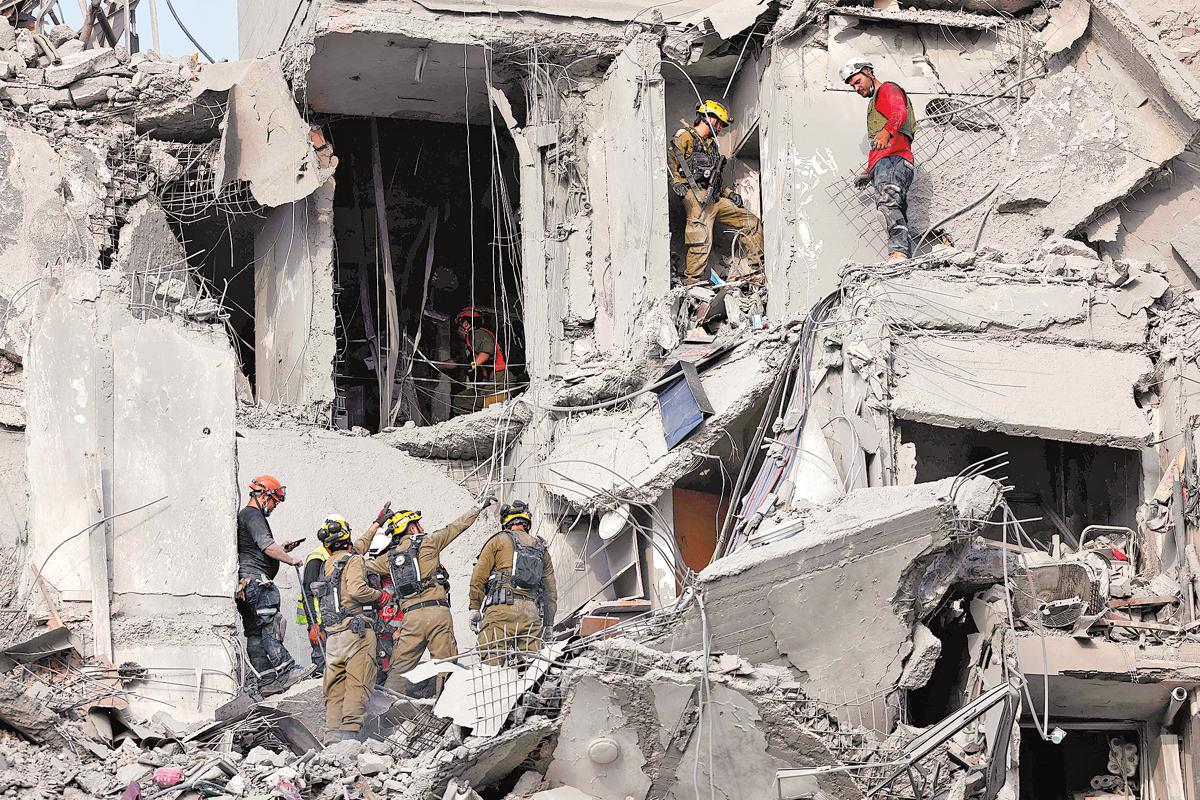
China called on Tuesday for a genuine ceasefire to push for an early de-escalation of the situation in the Middle East.
Foreign Minister Wang Yi made the remark in a phone call with Iranian Foreign Minister Seyed Abbas Araghchi.
Araghchi briefed Wang on the latest regional developments, emphasizing that the dangerous actions of Israel and the United States in attacking Iran's nuclear facilities severely violated international law, leaving Iran with no choice but to retaliate.
Wang said that China supports Iran in safeguarding its sovereignty and security, achieving a genuine ceasefire, restoring normal life for its people and de-escalating tensions in the Middle East.
China has always been a builder of peace and a promoter of stability in the Middle East, the Chinese foreign minister said.
Araghchi said that although a ceasefire had just been reached between Iran and Israel, the situation remained unstable. Genuine negotiations can only begin if Israel ceases its aggression, he said.
He expressed gratitude for China's understanding and support for Iran's legitimate stance, and affirmed Iran's willingness to maintain close communication with China.
Chinese Foreign Ministry spokesman Guo Jiakun said at a news briefing on Tuesday that China does not want to see the spiraling up of tensions in the Middle East, and it hopes that a ceasefire between Israel and Iran can be realized as early as possible.
Israel and Iran had accepted a ceasefire plan proposed by US President Donald Trump to end their 12-day war.
Trump announced late on Monday what he called a complete ceasefire, suggesting that Israel and Iran would have time to complete missions that were underway, and the ceasefire would begin in a staged process. "Officially, Iran will start the ceasefire and, upon the 12th hour, Israel will start the ceasefire and, upon the 24th hour, an official end to the 12-day war will be saluted by the world," he said.
In a statement from his office, Israeli Prime Minister Benjamin Netanyahu agreed to the ceasefire, saying that Israel has achieved all its goals, including removing the "dual existential threat" of Iran's nuclear and ballistic missile programs. But Netanyahu added that "Israel will respond forcefully to any violation of the ceasefire".
The Supreme National Security Council, Iran's top security body, later said the nation's forces had "compelled" Israel to "unilaterally" cease fire, adding that they remained "on high alert" to respond to any act of aggression. Iranian state TV earlier said that a ceasefire would take place in Iran starting at 7:30 am local time.
However, Israel said it had intercepted two Iranian missiles later on Tuesday, with its Defense Minister Israel Katz ordering the military to "respond forcefully" over the "violation of ceasefire".
The General Staff of the Iranian Armed Forces immediately denied launching missiles at Israel after the ceasefire announcement. Foreign Minister Araghchi had earlier said that if Israel stopped its aggression, Iran would have "no intention" to continue fighting.
However, Trump accused both Israel and Iran of violating the ceasefire only hours after he announced it, expressing frustration with both sides.
Before Trump said that "the ceasefire is now in effect" on Tuesday, a fresh wave of missiles from Iran hit central and northern Israel, killing four people, according to Israel's ambulance service, while Iranian authorities reported nine people killed, including a nuclear scientist, in an attack in northern Iran on Tuesday morning.
Trump's declaration came after an escalation since Sunday, when he ordered the US bombing of three Iranian nuclear sites, prompting Iran to retaliate on Monday by attacking the Al Udeid Air Base in Qatar, the largest and most up-to-date US military facility in the Middle East. Trump said Teheran had given advance notice of the barrage.
Iran said the assault wasn't targeting its neighbor. The National Security Council said it was "in response to the US' aggressive and insolent action", adding that the number of missiles launched "was the same as the number of bombs that the US had used", a signal that it had calibrated its response to be directly proportional rather than escalatory.
Luciano Zaccara, an associate professor of Gulf politics at Qatar University, said the US, Israel and Iran are all putting a positive spin on the ceasefire to "save face" and "avoid escalation".
Ma Xiaolin, dean of the Institute for Studies on the Mediterranean Rim at Zhejiang International Studies University, said that due to the lack of mutual trust, Israel and Iran are bound to strive to expand their military gains, portraying themselves as having achieved total victory.
He noted that "the trend of a ceasefire has been determined", and in fact, both parties are restrained and controlled in the conflict, despite possibility of continued tensions for more days.
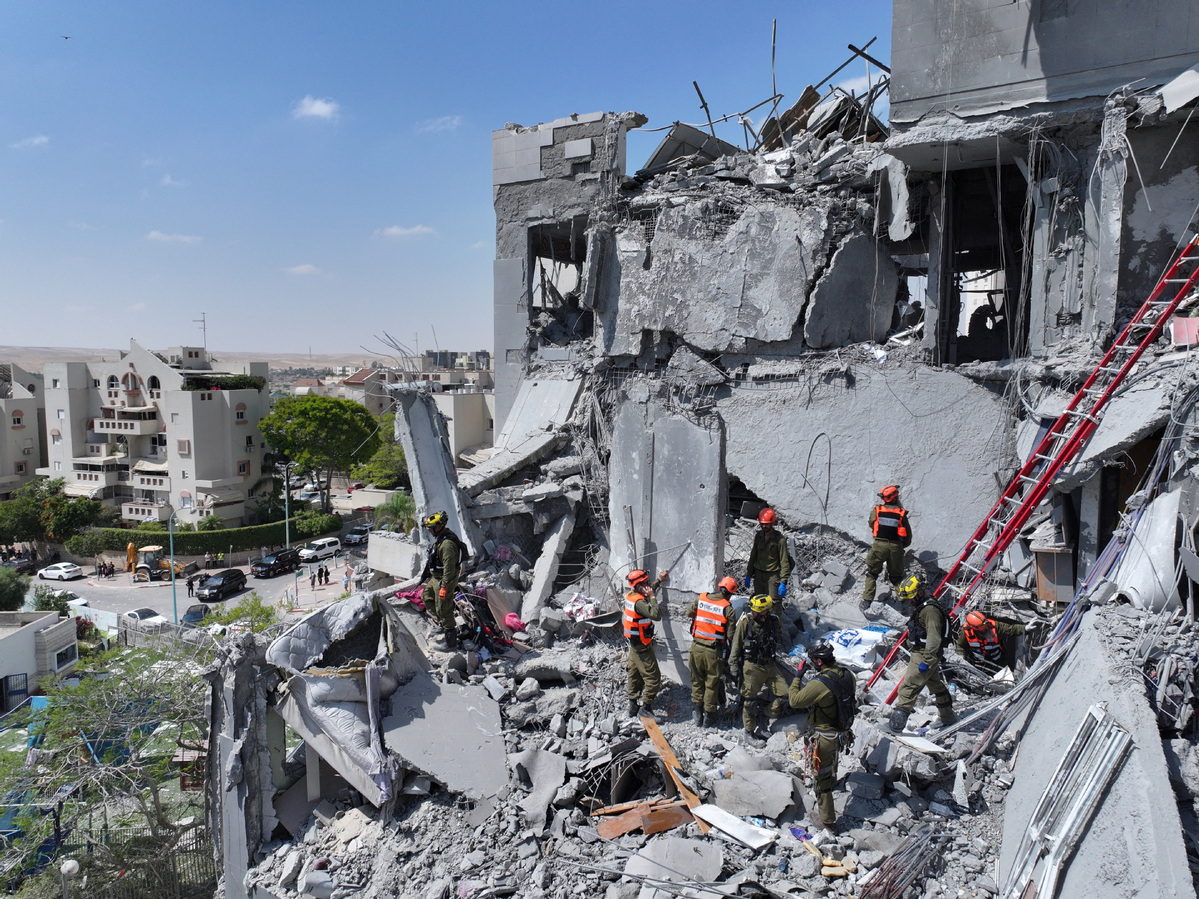
Asia-Pacific and Middle Eastern countries have welcomed the reported cessation of attacks between Israel and Iran on Tuesday, while urging all parties to pursue dialogue as the path to resolving conflicts.
Saudi Arabia's Foreign Ministry praised on Tuesday the Israeli and Iranian willingness for a ceasefire — first announced by United States President Donald Trump — saying it "values the efforts exerted to de-escalate tensions" amid fears of a brewing regional escalation.
The ministry said it looks forward to all parties committing to de-escalation in the coming period and refrain from the use or threat of force, hoping that the agreement will contribute to restoring security and stability in the region and averting the dangers of continued escalation.
"The kingdom reaffirms its firm position in support of dialogue and diplomatic means as the preferred path to resolving regional disputes and conflicts, based on the principles of respecting state sovereignty and promoting security, stability and prosperity in the region and the world," the ministry said.
Australian Prime Minister Anthony Albanese welcomed Trump's announcement of the ceasefire, saying Canberra has consistently called for dialogue, diplomacy and de-escalation.
In addition, Japan welcomed the ceasefire with "strong hope" that it will be firmly implemented. Chief Cabinet Secretary Yoshimasa Hayashi said Tokyo would continue to monitor how the situation unfolds in the Middle East "with high interest".
The crude oil and stock markets saw better performances following the truce announcement, with oil rates down and stock indices up in many countries.
However, Trump told reporters at the White House on Tuesday that he was unhappy with both sides for violating the ceasefire, but particularly unhappy with Israel, which he said had "unloaded" shortly after agreeing the deal.
In another development, Qatar's Prime Minister and Foreign Minister Sheikh Mohammed bin Abdulrahman bin Jassim Al-Thani said on Tuesday that Doha will pursue "diplomatic and legal measures" against Teheran following an Iranian attack on a US military base hosted in the Gulf state.
"The violation of Qatar's sovereignty is unacceptable, and all diplomatic and legal measures will be taken," he said.
On Monday evening, Qatar was subjected to an Iranian missile attack targeting the Al-Udeid Air Base of the US military, which was intercepted by Qatari air defenses, said Sheikha Alya Ahmed bin Saif Al-Thani, Qatar's permanent representative to the United Nations.
In a letter addressed to the UN Security Council, she called it a flagrant violation of sovereignty and territorial integrity.
Iranian Foreign Minister Abbas Araghchi said the missile launch was not against its Gulf neighbor but an act of "self-defense" after US strikes on nuclear sites.
"The missile operation by the Iranian Armed Forces targeting Al-Udeid base was carried out within the framework of Iran's legitimate right to self-defense," Araghchi said in a phone call with his Qatari counterpart.
The Iranian attack "should in no way be interpreted as an action against the friendly and brotherly government of Qatar", he was quoted as saying in a statement from his ministry.
The Qatari prime minister later said at a news conference in Doha, "What happened will definitely have its scar on the relationship (with Iran), but I hope by the time everyone learns the lesson that this kind of neighborhood relationship should not be violated and should not be undermined."
The Foreign Ministry of Oman condemned the continuing regional escalation, which was triggered by "Israel's unlawful attack" on Iran on June 13, and with the continued exchange of attacks since then, including Iran's missile strike on the US base in Qatar.
UN Secretary-General Antonio Guterres said he was "deeply alarmed by the further escalation of the conflict in the Middle East".
"I strongly condemn today's attack by Iran on Qatar, a country that has been active for peace in the region and further afield," he said.
Jasem Mohamed Albudaiwi, secretary-general of the Gulf Cooperation Council, condemned Iran's missile attack on Qatar and said GCC countries also strongly condemned Israeli attacks on Iranian territory and were making every effort to achieve a ceasefire and mediation.
Gokhan Ereli, Gulf studies coordinator at the Center for Middle Eastern Studies in Turkiye, told China Daily that Iran's targeting of the US base in Qatar as a retaliatory measure against US attacks risks triggering a severe crisis of confidence.
Despite reports that the US base had been evacuated and that advance notice was given to both the US and Qatar, "Qatar's assertion of its right to respond to the attacks stands as one of the clearest indicators of how relations between Iran and the GCC might evolve going forward", he added.
Agencies contributed to this story.
Contact the writers at jan@chinadailyapac.com
Foreign Minister Wang Yi spoke on the phone to Iran's Foreign Minister Seyed Abbas Araghchi on Tuesday and expressed China's support for Iran in safeguarding its sovereignty and security, and called for a genuine ceasefire to push for an early de-escalation of the situation in the Middle East.
China has always been a builder of peace and a promoter of stability in the Middle East, Wang said.
China has put forward a four-point proposal to address the current situation in which it has called for an immediate ceasefire, protection of civilians, initiation of dialogue and negotiations, and the advancement of peace efforts, which Wang said fully demonstrates the country's principled position of upholding justice and fairness.
After the United States' attack on Iran, China was among the first to express condemnation.
Wang emphasized that military strikes on nuclear facilities under the safeguards of the International Atomic Energy Agency severely violates the purposes of the United Nations Charter and international law, and may lead to nuclear leaks or even disasters, which the international community should oppose.
He said China supports Iran in safeguarding its sovereignty and security, achieving a genuine ceasefire, restoring normal life for its people, and de-escalating tensions in the Middle East.
China appreciates the Organization of Islamic Cooperation's unified call for a ceasefire and peace, Wang said, adding Beijing is willing to promote the UN Security Council to fulfill its primary responsibility in maintaining international peace and security.
He expressed appreciation to the Iranian government for assisting in the evacuation of Chinese citizens from Iran and said he hoped Iran would continue to ensure the safety of Chinese institutions, personnel, and diplomatic missions.
Araghchi briefed Wang on the latest regional developments, emphasizing that the dangerous actions of Israel and the US in attacking Iran's nuclear facilities severely violated international law and left Iran with no choice other than to retaliate.
Although a ceasefire has just been agreed between Iran and Israel, the situation remains unstable, he said, adding that genuine negotiations can only begin if Israel ceases its aggression.
Noting the 51st session of the Council of Foreign Ministers of the Organization of Islamic Cooperation had condemned the actions of both the US and Israel, he expressed hope that the UN Security Council will play a role in addressing the conflict.
Araghchi expressed gratitude for China's understanding and support of Iran's legitimate stance and affirmed Iran's willingness to maintain close communication with China.
Iran looked forward to China playing a greater role in easing the situation, he added.
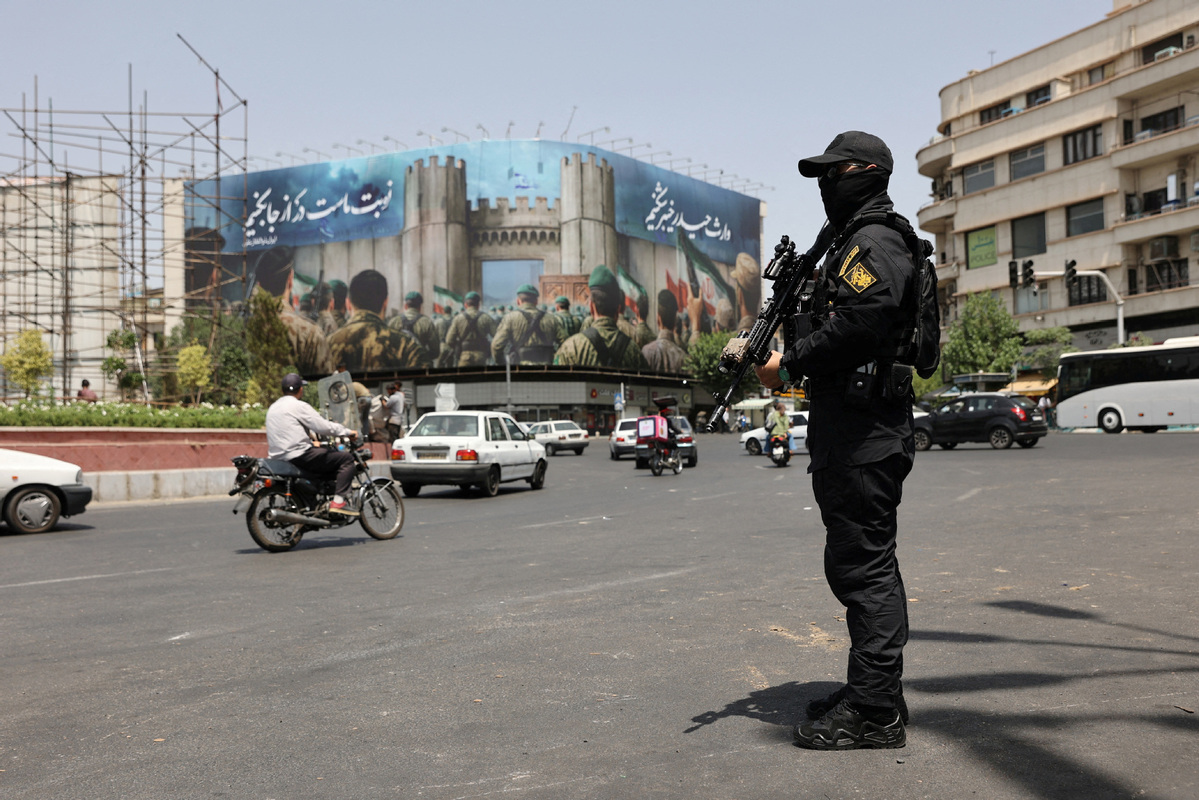
Explosions rang out in the Iranian capital Teheran on Tuesday despite United States President Donald Trump saying Israel had called off airstrikes, at his command, to preserve an hours-old ceasefire.
Witnesses in Teheran said they heard two loud explosions, while Israeli army radio said its forces had struck a radar site near to the city. In addition, the Iranian Students' News Agency reported witnesses hearing explosions near the northern city of Babolsar, where air defenses have been triggered, according to broadcaster Al Jazeera.
Israeli Prime Minister Benjamin Netanyahu's office said Israel still carried out one more attack and "destroyed a radar installation near Teheran" after Trump's appeal, but is refraining from "further strikes".
The pair spoke by phone again after Trump declared a ceasefire was "in effect" earlier on Tuesday.
Trump, who was en route to a summit of the NATO military alliance in the Netherlands, said Israel had called off its attack, after rebuking the authorities in Jerusalem with an obscenity, in an extraordinary outburst aimed at an ally whose military campaign he had joined just two days earlier.
"All planes will turn around and head home, while doing a friendly 'Plane Wave' to Iran. Nobody will be hurt, the Ceasefire is in effect!" Trump wrote in a post on his Truth Social network.
That followed an earlier post in which he had said: "Israel. Do not drop those bombs. If you do it it is a major violation. Bring your pilots home, now!"
Before departing the White House to go to the NATO summit, Trump told reporters he was unhappy with both sides for violating the ceasefire, but particularly unhappy with Israel, which he said had "unloaded" shortly after agreeing the deal.
"I've got to get Israel to calm down now," Trump said. Iran and Israel had been fighting "so long and so hard," he added, "that they don't know what they're doing."
Israel's latest attacks on Iran are a "sign of defiance", says Sultan Barakat, professor of public policy at Hamad Bin Khalifa University in Qatar. Through Israel's continued military operations against Teheran, Netanyahu wants to show Trump and the world that it is "Israel first", Barakat told Al Jazeera.
TEHRAN - The death toll from Israeli strikes across Iran over the past 12 days has reached 606, with 5,332 others injured, Iran's Health Minister Mohammad-Reza Zafarghandi said on Tuesday.
Zafarghandi described the past 24 hours as witnessing the "most horrific attacks and aggressions" by Israel since the start of the aerial conflict on June 13, resulting in 104 deaths and 1,342 injuries.
Meanwhile, Israel's Health Ministry has reported 28 fatalities and 3,238 injuries on its side since the onset of the conflict.
US President Donald Trump announced late Monday night that a ceasefire between the two sides would begin around 0400 GMT Tuesday.
Although both Iran and Israel accepted the ceasefire, violations were reported by both sides hours into the ceasefire, and both sides vowed to retaliate.
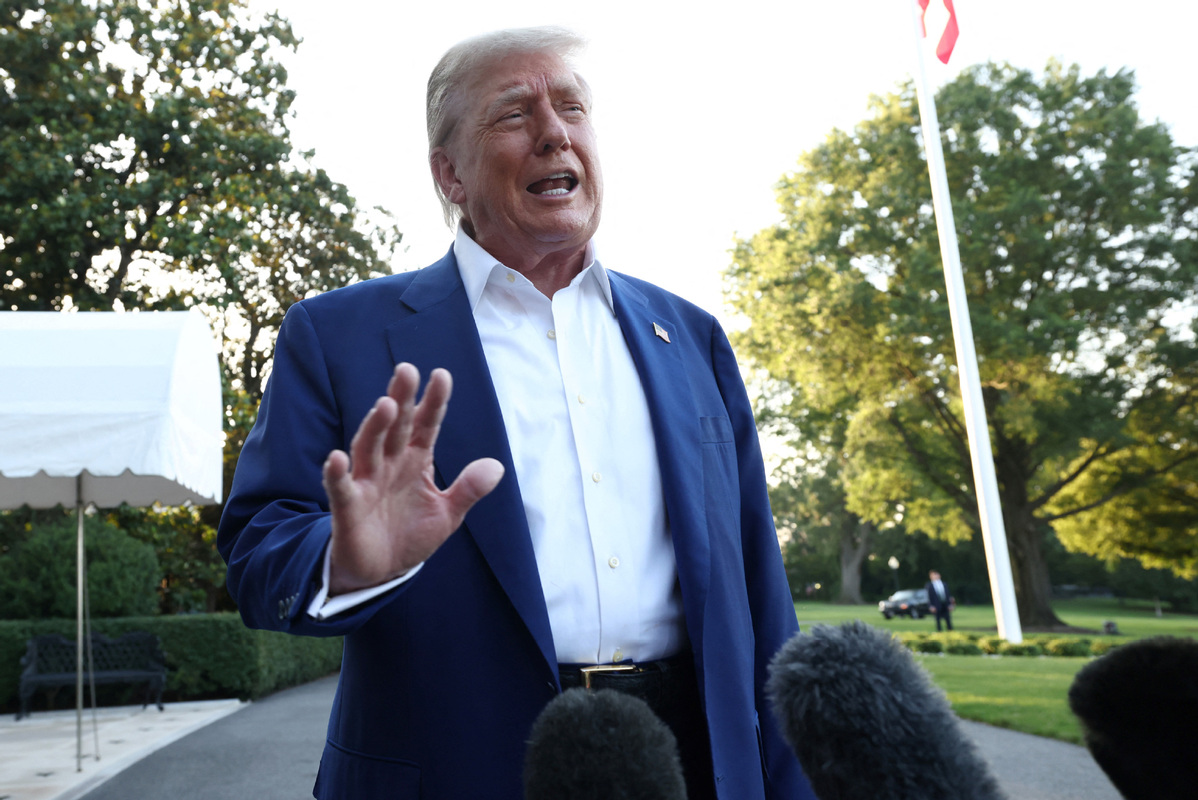
JERUSALEM/TEHRAN - US President Donald Trump told Israel on Tuesday "do not drop those bombs" on Iran, saying that this would be a "major violation" of the ceasefire.
"ISRAEL. DO NOT DROP THOSE BOMBS. IF YOU DO, IT IS A MAJOR VIOLATION. BRING YOUR PILOTS HOME, NOW!" Trump wrote in a post on his Truth Social platform.
Israel said on Tuesday it had identified missiles from Iran, shortly after the Israeli authorities said they had accepted a ceasefire proposed by Trump.
Iran had rejected reports of having launched missiles towards Israel following the ceasefire declared between the two sides earlier in the day, the semi-official Tasnim news agency reported.
Israeli Defense Minister Israel Katz said in a statement that he had "instructed the military to respond forcefully to Iran's violation of the ceasefire with intense strikes" against targets "in the heart of Tehran".
The missiles triggered air raid sirens across the Haifa area before being intercepted by the Israeli air defense systems, the military said. No injuries or damage had been reported.
Meanwhile, the Israeli Air Force continued its strikes in Iran, unleashing another wave of strikes in western Iran, with the military saying they had targeted missile launchers.
The latest escalation came shortly after Israeli Prime Minister Benjamin Netanyahu said Tuesday that Israel had accepted a ceasefire proposed by Trump and had achieved its war goals against Iran.
Trump had earlier announced that a ceasefire between the two sides would begin around 0400 GMT, with Iran expected to halt its operations first.
Iranian Foreign Minister Abbas Araqchi said earlier that there was no "agreement" on a ceasefire between Iran and Israel. However, he suggested Iran would be prepared to halt further retaliation if Israeli attacks stopped by 4 am Tehran time (0030 GMT).
"If Israel stops its illegal aggression against the Iranian people no later than 4 am, Iran has no intention of continuing its response afterwards," Araqchi wrote in a post on X, adding that "the final decision on the cessation of our military operations will be made later".
The conflicting narratives raised questions about the implementation and durability of any potential ceasefire. It remained unclear whether the reported deal had been communicated through diplomatic channels, or whether either side intended to follow the terms.
Trump announced Monday evening that Israel and Iran have reached a formal agreement to implement a complete and total ceasefire, marking what he called the end of the "12-Day War".
In a post on his Truth Social platform Monday, Trump said the ceasefire would initially last 12 hours, during which the opposing sides would maintain a posture of "peace and respect".
TEHRAN - Iran's atomic chief said on Tuesday that no pause would take place in the country's nuclear activities, according to state-run IRIB news agency.
President of the Atomic Energy Organization of Iran Mohammad Eslami made the remarks during an interview while pointing to the attacks by the United States and Israel on Iran's nuclear facilities, the report said.
"We have made the necessary arrangements and preparations and are assessing the damages," Eslami said, stressing that preparations for reviving the country's nuclear facilities had been anticipated in advance.
He emphasized that the country has plans to prevent any pause in its nuclear production and services.
On June 13, Israel launched major airstrikes on different areas in Iran, including nuclear and military sites, killing several senior commanders, nuclear scientists and civilians. Iran responded by launching several waves of missile and drone attacks on Israel, inflicting casualties and heavy damages.
The United States on Saturday attacked three Iranian nuclear sites --Fordow, Natanz and Isfahan. In retaliation, Iran on Monday targeted US Al Udeid Air Base in Qatar with missiles.
Shortly after Iran's retaliatory attack, US President Donald Trump on Monday night announced that Israel and Iran had reached a formal agreement to implement a complete and total ceasefire, marking what he called the end of the "12-Day War".
Nevertheless, Israel on Tuesday morning claimed it had detected new missile launches from Iran -- a charge denied by the Iranian military.
